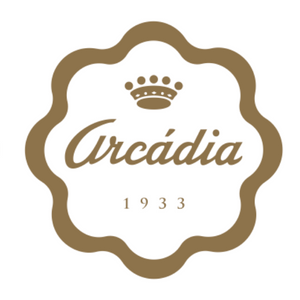(a memory of Porto before the revolution)

Jorge Saavedra, with his sister Maria Emília (on the right), his friend João Póvoas, his nephew Paulo and his friend Maria José Figueirinhas (on the left). In the background, a young employee was serving dinner, offered to his friendly customers by João Bastos, the owner of Arcádia.
Uncle Jorge arranged to meet me at Arcadia at six in the afternoon. It was a habit that had intensified with my recent 18th birthday and the oil crisis of 1973. Uncle Jorge would give me his Audi coupé in the morning, I would take it to the bank, I would wander around the city looking for a bomb with queuing for gas and, after hours of waiting studying a little and reading Tintins, I gained my freedom. At the end of the afternoon I stopped in front of Arcadia to hand over the keys. If I were to stay, I would go up the Square a little further and leave the car in the Comércio do Porto garage.
Uncle Jorge worked at Banco Borges & Irmão, on the powerful Credit Commission, where, between the analysis of the merit of requests, the credit relations friendship, and some gifts in between, decided many futures of Porto's entrepreneurship. After the day's work was over, he left the austere building on Rua de Sá da Bandeira behind and walked with pleasure along the cluttered Rua de Sampaio Bruno, savoring its throng of dream sellers. Brightly colored oil paintings displayed on the sidewalk mixed with newspaper advertisements and cautions from Casa da Sorte and Deus Dá A Sorte. And, at the beginning of the 70s, the street had become a walking stock exchange, adding to the lottery precautions capital shares from cement companies, banks and insurance companies, distributed to the people in public subscription.
He filled up on Mild Portuguese, now with a filter because of his more chronic cough, bought the sports newspaper of the day, preferably O Norte because it was the only one that defended Porto, crossed the Square, and entered his living room with familiar ease. of being in the city. If no one had arrived yet, Mr. Bastos would set aside the table. But most of the time the conversation was already running, between teas and feminine toast, ham triangles and a Super Bock for the more restrained, coffee and Croft, in a balloon several times full, for those who weren't afraid of dying.
That day he had put on a special tie because the program was extended. Senhor Bastos would close the door as always at eight o'clock, and offer a private dinner to Uncle Jorge's friends, Senhor Saavedra, who were also his friends. A gesture of complicity between two men who over time had united in a friendship, always respectful, but which the sharing of habits and the passing of years had made truly sincere.
Mr. Saavedra was a single man, reputed to be from an old family with many assets. Behind the discreet bank employee there was talk of farms in the Douro, of old wine warehouses in the city, and especially of a farm in Gaia that had housed Wellington during the French invasions. But none of this he integrated into his social life. He left everything in the care of his married sister, his brother-in-law, and now little by little his eldest nephew who accompanied him everywhere.
Mr. Bastos respected Mr. Saavedra's simplicity. He got along with high-ranking people as much as he could appear with the bank clerk, introduced as a friend. For someone without social graces in Porto at the time, entering Arcadia was just like that. The caste destiny ended on a high with lupins in the popular Sá Reis. Or, at most, a romantic snack in Ateneia, if he found a decent girlfriend to marry. Sá Reis, Ateneia and Arcádia, followed in this order, displayed from left to right in the main block of Praça da Liberdade, were a rigorous reading of the social condition of each Porto resident.
– Who would Mr. Saavedra like to invite to dinner? They both knew that it had to be a restricted selection, Senhor Bastos didn't close Arcadia for mundane dinners, just for his family and close friends' parties. Of course, he would go to Conceição, girlfriend and rich heiress of Transportes dos Carvalhos. My friend Maria José Figueirinhas, from the best families in the city. João Póvoas, his everyday companion, and his sister Margarida, single and aristocrats. Only the Macedo couple were married. And the family, sister Maria Emília with brother-in-law José Paulo. Nephew Paulo, who was bringing the car, could stay too.
It was a dinner that remained in the family's memory. First the appetizers in the counter room. Then the table was set in the large room in the basement. Mr. Bastos assumed the presidency, and guided the disposition of the guests, the photographer's look, the choice of wines, the arrival of fish and meat dishes. At the end, the Arcadia pies. With the Port wine, father José Paulo made a toast of thanks. As he was a little older, he well remembered founding father Manuel Bastos running the young art deco confectionery shop from his student days. He remembered the marriageable girls arranging a meeting in Arcadia with their suitors, so their mothers could rest. From the legend of the complicit employee who served white wine in a cup of tea to one of these girls. Young men like him, very hungry and with a short week, make quick escapes to the eating houses behind Palácio das Cardosas to eat some onion liver with barrel wine. And reappear sated to continue the romantic tea.
Paulo de Lencastre
Porto, December 13, 2020





